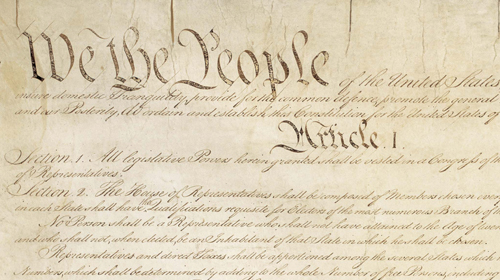
In the 1963 Supreme Court case Brady v. Maryland, the U.S. Supreme Court recognized a defendant’s fundamental right to any and all favorable information that might prove he or she was innocent of a crime. From that case came the “Brady Rule” –the constitutional obligation for the prosecution to disclose any material evidence favorable to the accused.
That the Supreme Court had to explicitly define this legal and moral obligation is an unfortunate comment on prosecutorial practices. But even more disturbing is that almost 50 years later, Brady violations persist as prosecutors continually violate their evidence disclosure obligations in pursuit of “wins.” Such practices have had devastating consequences for the accused, and these are only the fraction that have been discovered.
For example, in 2003, Edgar Rivas was sentenced to serve more than 10 years in federal prison after being convicted of conspiracy to possess and possession of more than five kilograms of cocaine aboard a foreign freighter arriving in the U.S. During the trial, the prosecution failed to inform the defense that on the day the trial began, the government’s main witness against Mr. Rivas admitted to bringing the drugs aboard the ship. This fact only came to light after the trial ended, when the government translator revealed this critical piece of information to the defense counsel.
Even after the defense was made aware of the conversation, the prosecution maintained that they were not required to disclose the information because it did not prove Mr. Rivas’ innocence. Fortunately, on appeal, the 2nd U.S. Circuit Court of Appeals disagreed and called, “the Government’s ‘tactical reason[]’ for the nondisclosure…totally unacceptable.” The appellate court said that Rivas “should have had the opportunity to bolster the defense theory” of the other party’s guilt. The Second Circuit proceeded to find that the prosecution’s decision to withhold the information constituted a violation of the Brady Rule, vacated the judgment and ordered a new trial for Mr. Rivas. If not for the actions of a government translator, Mr. Rivas might still be in prison today.
But as Mr. Rivas’ story indicates, nearly five decades after the Supreme Court decision, Brady violations continue to stain the criminal system. This became clear nationally in the case of Former Alaska Sen. Ted Stevens. Stevens’ 2008 conviction for criminal ethics violations was dismissed due to egregious prosecutorial misconduct, which included withholding evidence, providing the defense with misleading information, and putting forth false testimony from a key government witness against Stevens.
In an effort to reaffirm and clarify the Brady Rule, Sen. Lisa Murkowski (R-Alaska) has introduced the Fairness in Disclosure of Evidence Act. This bipartisan legislation will clarify what evidence must be disclosed and when it must be disclosed as well as address remedies for Brady violations.
This legislation is long overdue and the ACLU supports Murkowski’s efforts to address this problem. The failure to disclose exculpatory evidence cannot be tolerated in a system predicated on justice. The Fairness in Disclosure of Evidence Act will help ensure that the principle of the Brady Rule is upheld and that all people maintain their constitutionally guaranteed rights.
Learn more about criminal justice reform: Sign up for breaking news alerts, follow us on Twitter, and like us on Facebook.

